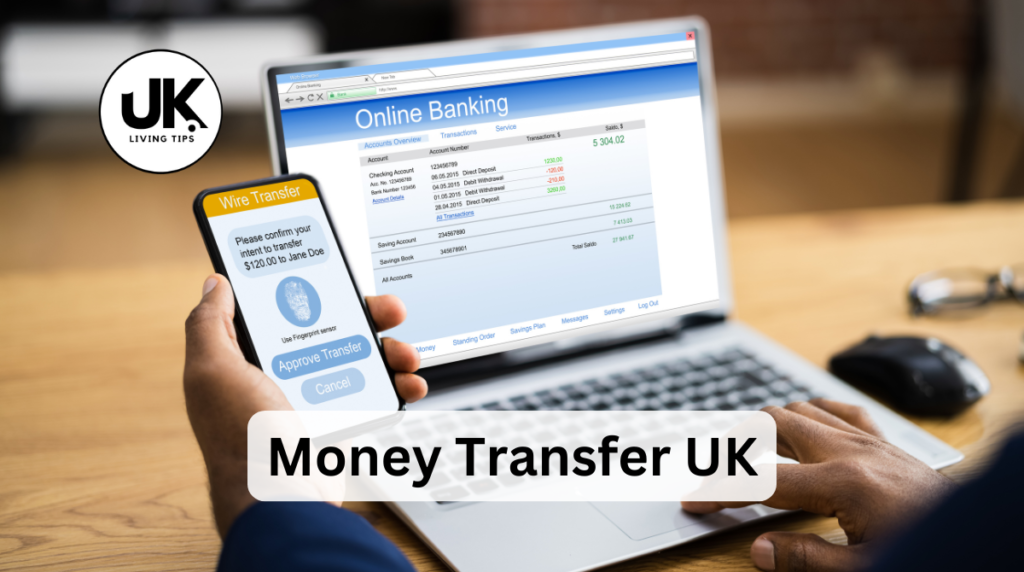Money transfer UK
Sending money from the UK to friends, family, or businesses overseas is a common occurrence, whether for supporting loved ones, making international purchases, or managing finances as an expat. Navigating the various options available can be confusing, so this guide will equip you with the knowledge to make informed decisions.
Read Also: How to Open a revoult Bank account in the UK
Overview
Understanding Your Options:
Several methods exist for International money transfer UK, each with its strengths and weaknesses regarding cost, speed, and security.
- Banks: High-street banks offer international wire transfers, a traditional and generally reliable method. However, they often charge higher fees and offer less competitive exchange rates compared to other options. Transfer times can also be slower.
- Money Transfer Operators (MTOs): Companies like Western Union and MoneyGram are established players in the international money transfer market. They typically offer a wider network of locations for cash pick-up but may charge higher fees, particularly for smaller transfers. Exchange rates can also be less favourable.
- Online Money Transfer Services: This sector has exploded in recent years, offering significant advantages. Services like Wise (formerly TransferWise), OFX, WorldRemit, and Remitly provide user-friendly platforms, often with transparent pricing, competitive exchange rates, and faster transfer times. They usually offer various transfer methods, including bank transfers, debit/credit cards, and sometimes even cash pick-up.
Companies Offering International Money Transfers from the UK:
- Wise (formerly TransferWise): Known for its transparent fees and mid-market exchange rates. A popular choice for its fairness and simplicity.
- WorldRemit: Offers a wide range of transfer options and competitive rates, especially for certain corridors.
- Remitly: Another strong contender focusing on speed and affordability, particularly for specific transfer routes.
- OFX: Often favoured for larger transfers and business transactions, offering competitive exchange rates.
- Western Union: A globally recognized MTO, but fees can be higher than online alternatives.
- MoneyGram: Similar to Western Union, providing a large network but potentially less competitive pricing.
- CurrencyFair: A peer-to-peer platform offering competitive exchange rates, but suitable mainly for larger, less urgent transfers.
Key Factors to Consider:
- Fees: Pay close attention to all fees – transfer fees, currency conversion fees, and any additional charges. Many providers now offer fee-free or low-fee options for certain currencies or transfer amounts, so comparison-shopping is crucial.
- Exchange Rates: The exchange rate dramatically impacts the final amount received. Always compare the mid-market rate (the average exchange rate between banks) with the rate offered by the provider. A significant difference signals a less favorable exchange rate. Look for providers that offer rates close to the mid-market rate.
- Transfer Speed: How quickly do you need the money to reach its destination? Options range from instant transfers to those taking several business days. This is especially crucial for urgent needs.
- Security: Choose a reputable and regulated provider with robust security measures to protect your financial data and prevent fraud. Look for providers with encryption and other security protocols.
- Transfer Limits: Some providers impose limits on the amount you can send in a single transaction or within a given period. Check these limitations before choosing a provider.
- Customer Service: Access to reliable customer service is essential in case of problems. Check reviews and testimonials to gauge the responsiveness and helpfulness of the customer support team.
- Transparency: Choose a provider that openly displays all fees and exchange rates upfront, avoiding hidden charges.
Step-by-Step Guide to Sending Money from the UK:
- Compare Providers: Use comparison websites or independently research different providers to compare fees, exchange rates, and transfer speeds.
- Register/Create an Account: Most online services require you to register an account, providing personal and financial details.
- Provide Recipient Information: Accurately provide the recipient’s full name, address, bank details (account number, SWIFT code, etc.), and any other necessary information. Inaccuracies can delay or prevent the transfer.
- Enter Transfer Amount: Specify the amount you wish to send in GBP (British Pounds).
- Review Fees and Exchange Rate: Carefully review all charges and the final amount the recipient will receive before confirming the transfer.
- Choose Payment Method: Select your payment method (debit card, credit card, bank transfer).
- Confirm Transfer: Once you’ve confirmed all the details, authorize the transfer.
- Track the Transfer: Most providers offer tracking options, allowing you to monitor the transfer’s progress.
Security Best Practices:
- Use Strong Passwords: Create strong, unique passwords for all your online accounts.
- Verify Provider Legitimacy: Ensure the provider is a reputable and licensed company. Check for security certifications and reviews.
- Avoid Phishing Scams: Be cautious of suspicious emails or websites requesting your financial information.
- Use Secure Wi-Fi: Avoid sending money using public Wi-Fi networks.
- Regularly Monitor Your Accounts: Check your bank and money transfer accounts regularly for unauthorized activity.
Choosing the right provider depends on your specific circumstances: Consider the amount you’re sending, the recipient’s location, the urgency of the transfer, and your personal preferences.
FAQ:
Q: What is a SWIFT code? A unique identifier for a bank, essential for international wire transfers.
Q: What is an IBAN? An International Bank Account Number, used in many European countries for identifying bank accounts.
Q: How do exchange rates work? The value of one currency relative to another, constantly fluctuating.
Q: Are online money transfers safe? Reputable providers employ robust security; choose a trusted, regulated company.
Q: How long does a transfer take? Varies depending on the provider and method; from instant to several business days.
Q: What if my money doesn’t arrive? Contact the provider immediately; they have procedures for investigating and resolving such issues.
Q: Are there fees for sending money abroad? Yes, fees vary among providers; always compare before sending.
Q: Can I send any amount of money? Transfer limits exist; check the provider’s terms and conditions.
Remember to always thoroughly research and compare providers before sending money abroad to ensure you get the best possible value and security.thumb_upthumb_down



